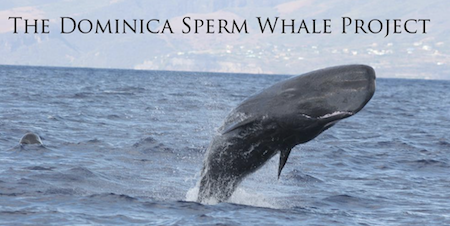Dominica: Marine Protected Area Created for Sperm Whales
The tiny Caribbean island of Dominica is creating the world’s first marine protected area for the endangered sperm whale, one of Earth’s largest marine animals.
Published 12 months ago
The tiny Caribbean island of Dominica is creating the world’s first marine protected area for the endangered sperm whale, one of Earth’s largest marine animals. In announcing the new reserve, the Prime Minister of Dominica, Roosevelt Skerrit, said 300 sq miles (800 sq km) of royal blue waters on the western side of the island nation, that are key nursing and feeding grounds for the whales, will be designated as a protected area.
“We want to ensure these majestic and highly intelligent animals are safe from harm and continue keeping our waters and our climate healthy,” Prime Minister Skerrit, said in a statement.
The reserve would allow sustainable artisanal fishing and delineate an international shipping lane to avoid more deaths of sperm whales, which have the largest brain of an animal species in the world and can grow up to 50ft (15 meters).
Regulations will be enforced
Prime Minister Skerrit said once the reserve is created his administration will appoint an officer and observers to ensure the area is respected and that whale tourism regulations are enforced.
“Visitors will still be able to swim with sperm whales and see them from a boat, but numbers will be limited,” he said.
Fewer than 500 sperm whales are estimated to live in the waters surrounding Dominica, part of a population that moves along the Lesser Antilles chain, swimming as far south as St. Vincent and north into Guadeloupe.
Unlike sperm whales elsewhere in the world, the ones around the eastern Caribbean do not travel very far, according to Shane Gero, a whale biologist and founder of the Dominica Sperm Whale Project, a research program focused on sperm whales in the eastern Caribbean.


In waters around Dominica and elsewhere, sperm whales have been hit by ships, entangled in fishing gear and affected by agricultural runoff, limiting their survival. In the pre-whaling days, an estimated 2 million sperm whales roamed the Earth’s deep waters before they were hunted for oil used to burn lamps and lubricate machinery. Now, some 800,000 are left, Gero said.
……………………………………….
Related Links:
……………………………………….
Find out all news, reports, links and comments posted on Noonsite, plus cruising information from around the world, by subscribing to our FREE monthly newsletter. Go to https://www.noonsite.com/newsletter/.
Related to following destinations: Dominica, Marigot, Mero, Portsmouth, Roseau
Related to the following Cruising Resources: Environment, General





